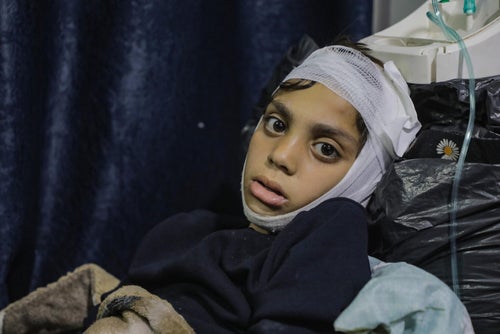On 24 February 2022, children across Ukraine woke to terrifying sounds of air raid sirens. Gathering what they could, families fled to safety, either underground or across the borders into neighbouring countries, triggering one of the largest displacement crises since World War II.
Now, three years into a full-scale war and 11 years of conflict in the country’s eastern region, families have been torn apart and childhoods shattered, while Ukraine’s youth are in the midst of a severe mental health and education crisis. Tragically, 1 in 5 children in Ukraine have lost a relative or friend since February 2022, nearly 1.2 million children are missing out on full-time, in-person learning, and children in frontline areas are forced to spend up to 5,000 hours – equivalent to nearly seven months - sheltering underground.
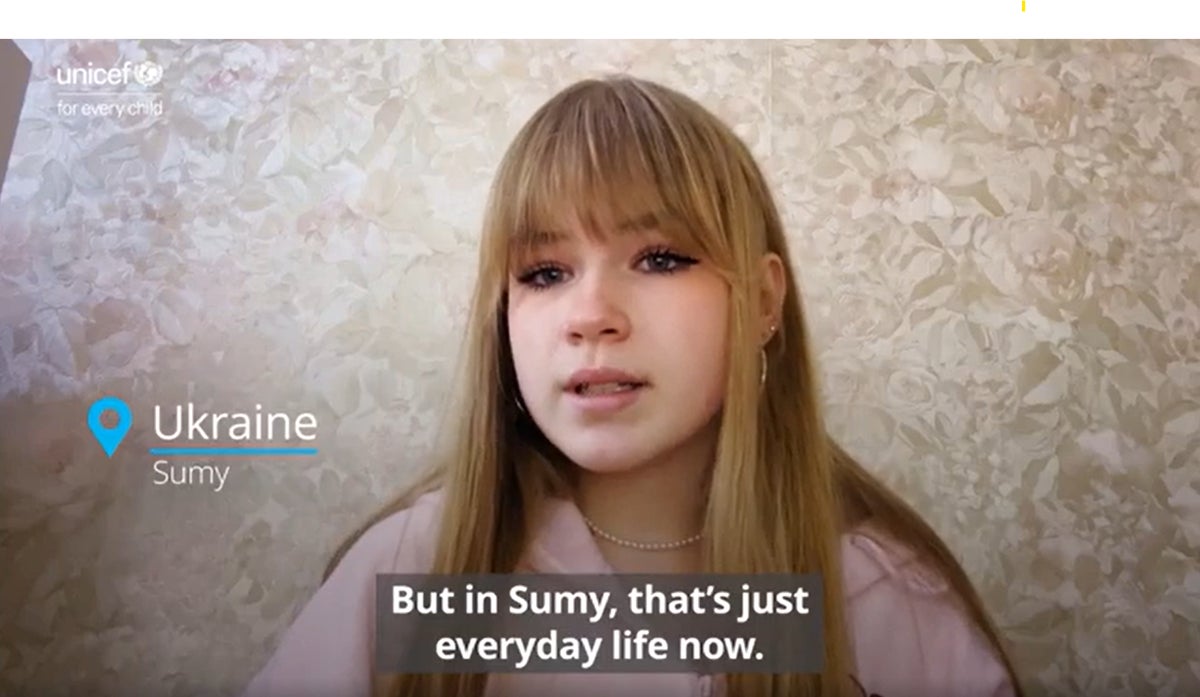
Growing up in Ukraine amid war
The war has left children and teenagers facing profound loss and deprivation, deeply affecting their development and wellbeing during critical stages of their lives.
Evidence shows that there are two critical stages of a child’s development. The first years of life lay the foundation for everything that follows - how they move, think, communicate, and connect with others. These early years shape their future wellbeing, potential, and opportunities. Yet, three-year-olds in Ukraine have only known war.
The second critical stage is during the teenage years when teens experience rapid physical and cognitive development unseen since early childhood. They begin interacting with the world in new ways, taking chances, learning skills and experiencing unfamiliar emotions. This period can spark innovation and achievement but also leave them vulnerable. In Ukraine, children and adolescents are enduring prolonged fear, stress, anxiety and isolation from their peers.
Three-year-old Katya has only known war
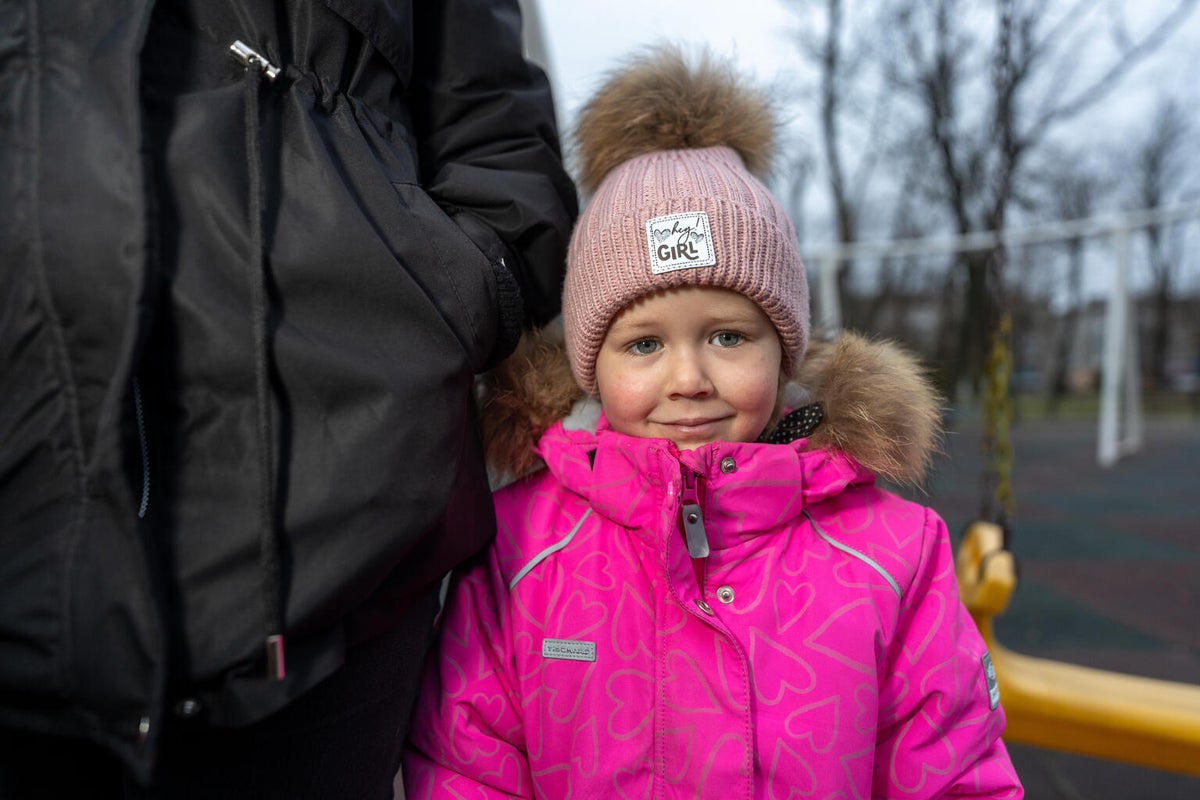
Born into war, three-year-old Katya has already experienced more upheaval than many do in a lifetime - airstrikes, evacuation, and separation from her father.
"Parents often say that small children do not understand what war and shelling mean. But that is not true."
Katya’s hometown is one of the most heavily war-affected areas in Ukraine, with regular attacks and intense fighting. Katya's family spent the first two months of the war in their basement, with no access to electricity, heating or supplies, as outside temperatures plummeted to -18°C.
During a brief lull in the fighting, the family left their house and found their street in ruins. At that moment, Alyona decided to evacuate.
Alyona and her daughter fled to Germany by train, where they lived for one and a half years. Now back home, Katya is adapting to life in a town still affected by war. Though her kindergarten remains closed, she attends UNICEF-supported early learning classes, where she has made her first friends and begun speaking more at home. However, life remains difficult. Air raid sirens are a daily reality.
"We survived terrifying shelling, we survived immigration, and now we are finally home,” she says. “I cannot allow myself to fall apart because Katya will feel it too. So, we hope for the best. I believe the war will end. And if not kindergarten, then Katya will at least be able to go to school in peaceful times."
Three-year-old Yehor, was only a few weeks old when he was displaced
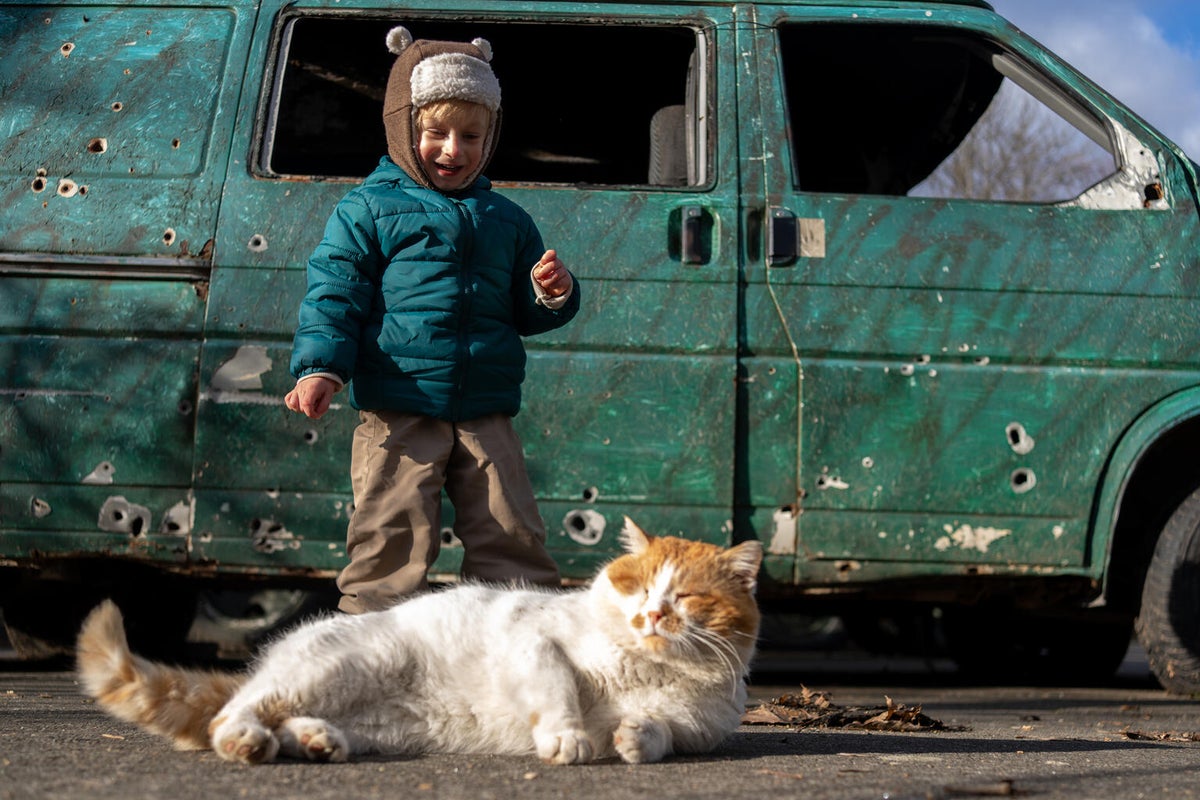
Born just weeks before the full-scale war began, three-year-old Yehor has spent his entire life in displacement. As Yevheniia fled for safety with Yehor as a newborn, the roads to their city closed behind them.
“I often think about that day,” says Yevheniia. “I have never regretted that my husband and I made the decision to leave. We left for the safety of our son. If not for him, we could have stayed. So, it turned out that the child saved our lives as well.”
In the three months after Yevheniia and her family left, their city was destroyed, and several thousand people were killed.
"I think the war has robbed the children of a real childhood. Every time I think about it, I want to cry. It's hard to believe that this is possible in the twenty-first century. Whatever I can do to compensate for what the war has taken from my son, I try."
At six-years-old, Anya has never experienced kindergarten
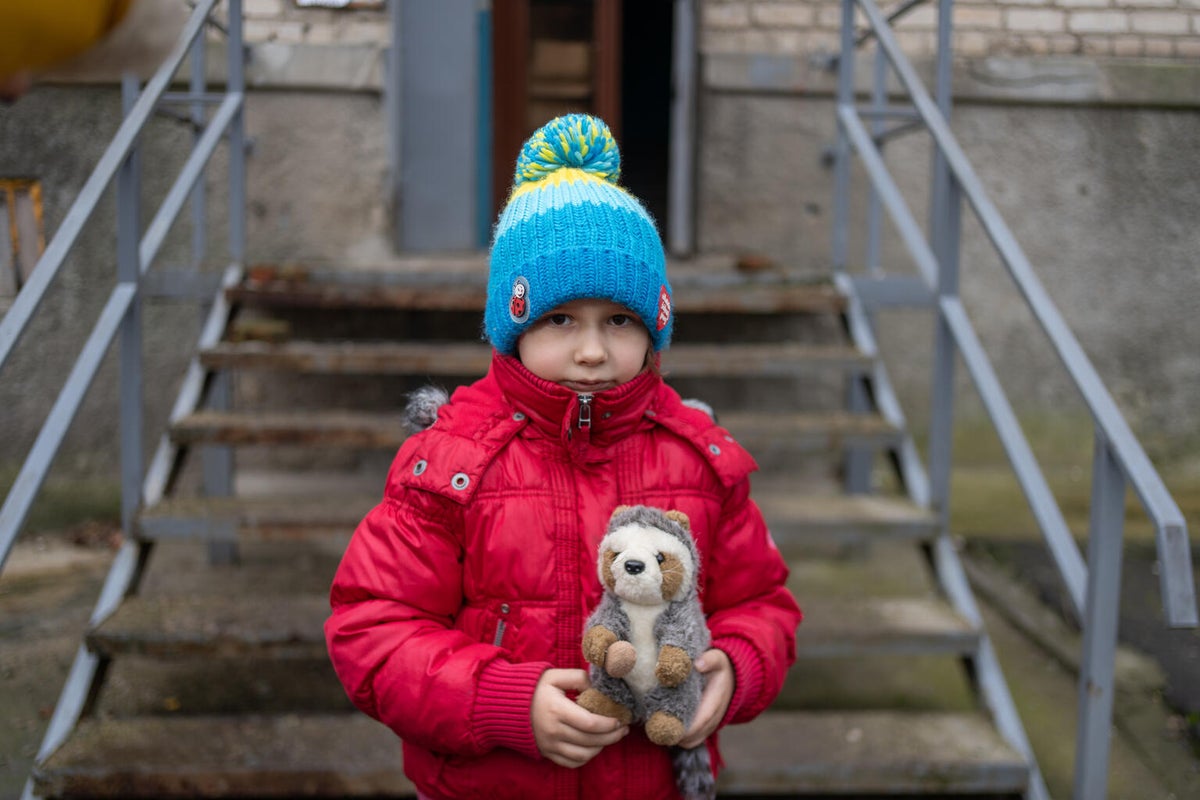
Six-year-old Anya holds her favourite toy, a stuffed raccoon, as she stands in front of the family’s apartment building.
"I’ve never been to kindergarten. Mum says I might start school next year. I want to go to school because I could make new friends there. I also really want a dog, but my Grandpa is allergic, so we can’t have one."
The ongoing displacement of 3.6 million people within Ukraine and widespread damage to infrastructure has left many children without access to education, healthcare, and stable living conditions.
Seven-year-old Milana holds tightly to the one toy that means the world to her
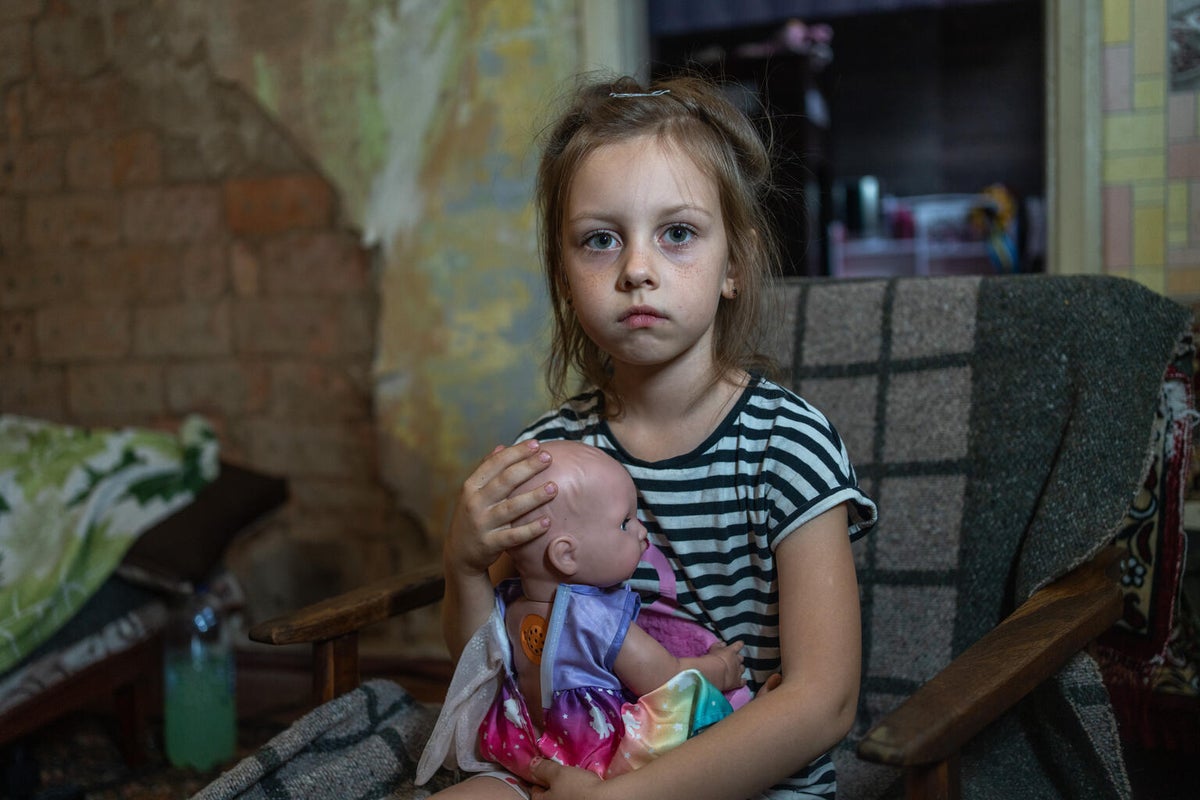
Seven-year-old Milana holds her doll, Omelka, in the small room her family now shares after fleeing their hometown. The family left their home due to large-scale shelling. Milana’s father returned to retrieve the doll to comfort her.
"When we were leaving, there was shooting. We were all leaving quickly, packing our things, a million things. I didn't take Omelka right away because I was very upset. But my Dad came back for her so that I wouldn't be sad."
Among the many heartbreaking decisions that Ukrainian families must make when forced to flee their homes, there is one decision in particular that children agonise over – which toy to take with them.
Parents often have no time to pack amid the explosions, with little space left in bags after throwing in warm clothes, official documents and food. Children's evacuation backpacks sometimes can only hold one teddy bear, an old doll or a toy car. But these toys can be a lifeline, helping children to fall asleep, calm down and remember home.
At 10-years-old Andrii lost his dad in the war
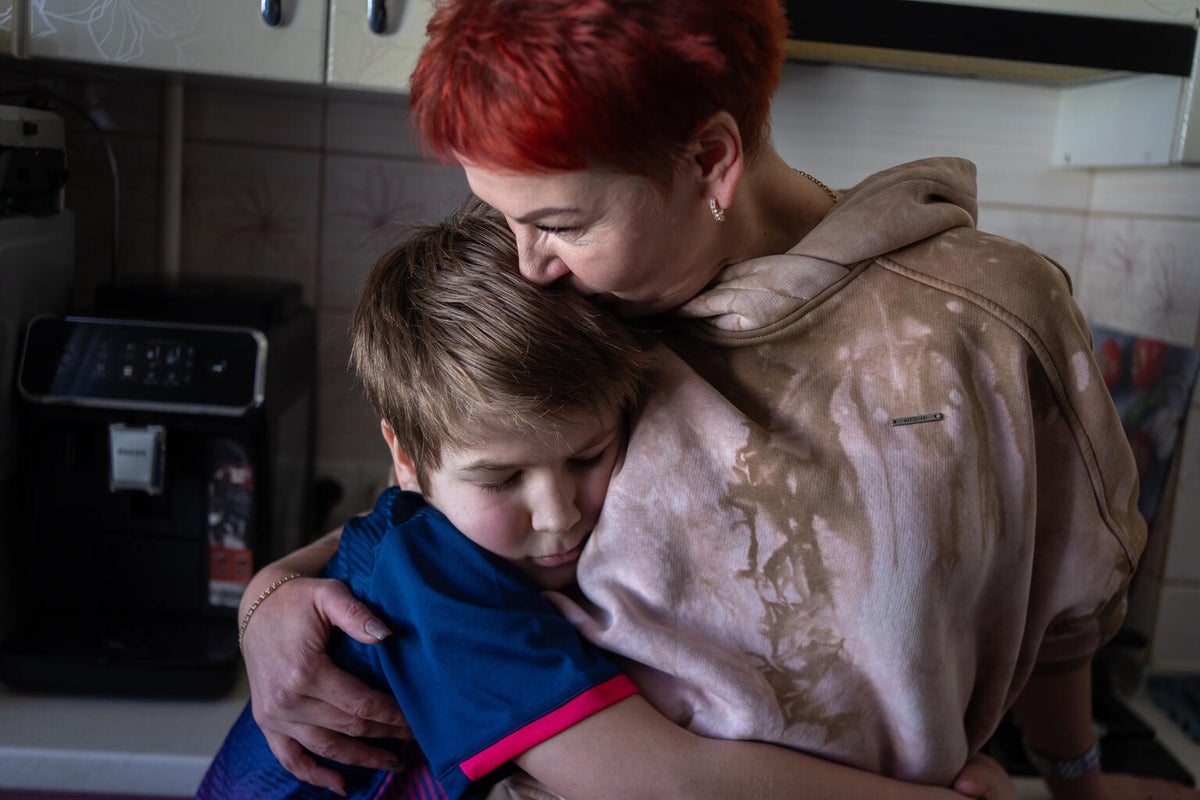
After losing his dad in 2023, it has just been 10-year-old Andrii and his mum. “I really don’t like living without Dad,” he says. “But Mum does everything for me, she tries to make sure I’m okay. And I try to support her in return.”
Born in a frontline city in 2014, the year the fighting began, Andrii learned early how to stay safe, especially after the full-scale war started on 24 February 2022.
"It's scary when a shell whistles because that's when you have to drop to the ground quickly. When a drone is coming, you have to run in a zigzag – that way, it has less chance of hitting you."
In Andrii’s city, where shelling happens almost daily, each second can make the difference between life and death.
For the past three years, families like Andrii's have lived without schools or safe places to play and be with friends.
At 11-years-old Timofii wishes to be back at school with his friends
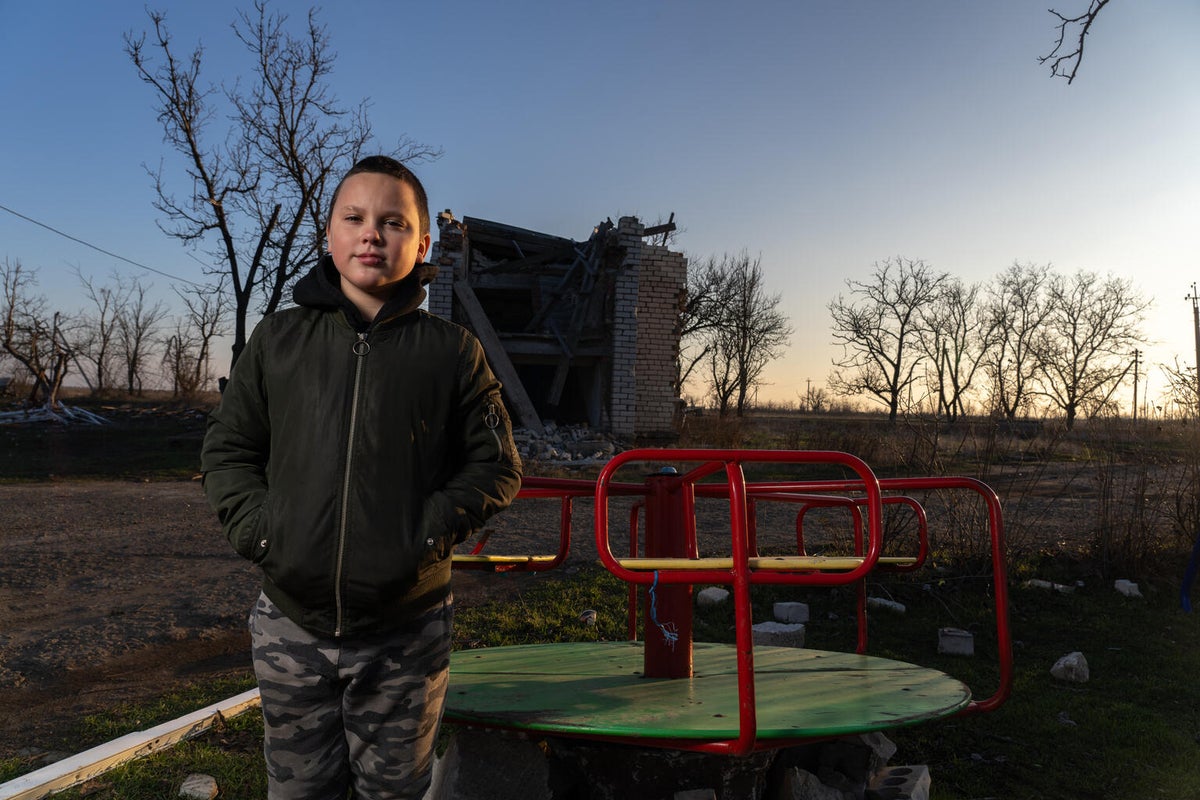
"It's hard here. I have no friends. The school was destroyed, and the kindergarten was destroyed. Everyone has left, and there's no one to play with except my brother. I really want to go to a normal school and for the war to end."
At 12-years-old, Alina lives in a town with no school or medical facility
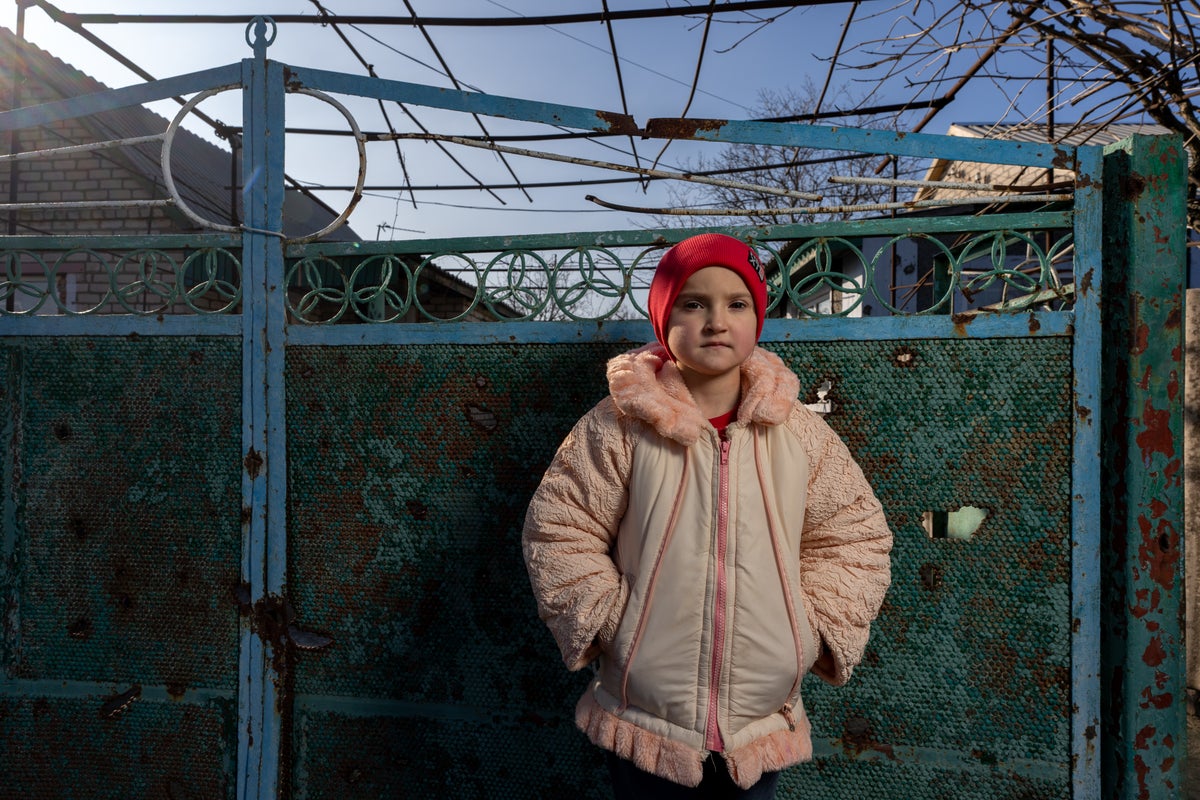
Standing in front of her heavily damaged home, 12-year-old Alina reflects on how her town no longer has a school, kindergarten or medical facility.
"We fled when the shelling started and went to my older sister’s house. The day after we left, two missiles hit our house. "
Since February 2022, over 1,600 schools have been damaged or destroyed. In villages like Alina’s, where over 80 per cent of homes are in ruins, children struggle to find normalcy. Nearly 40 per cent of Ukrainian children now study only online or through blended formats, facing an average learning loss of two years in reading and one year in math.
At 14-years-old, Yana lives in a home with no running water
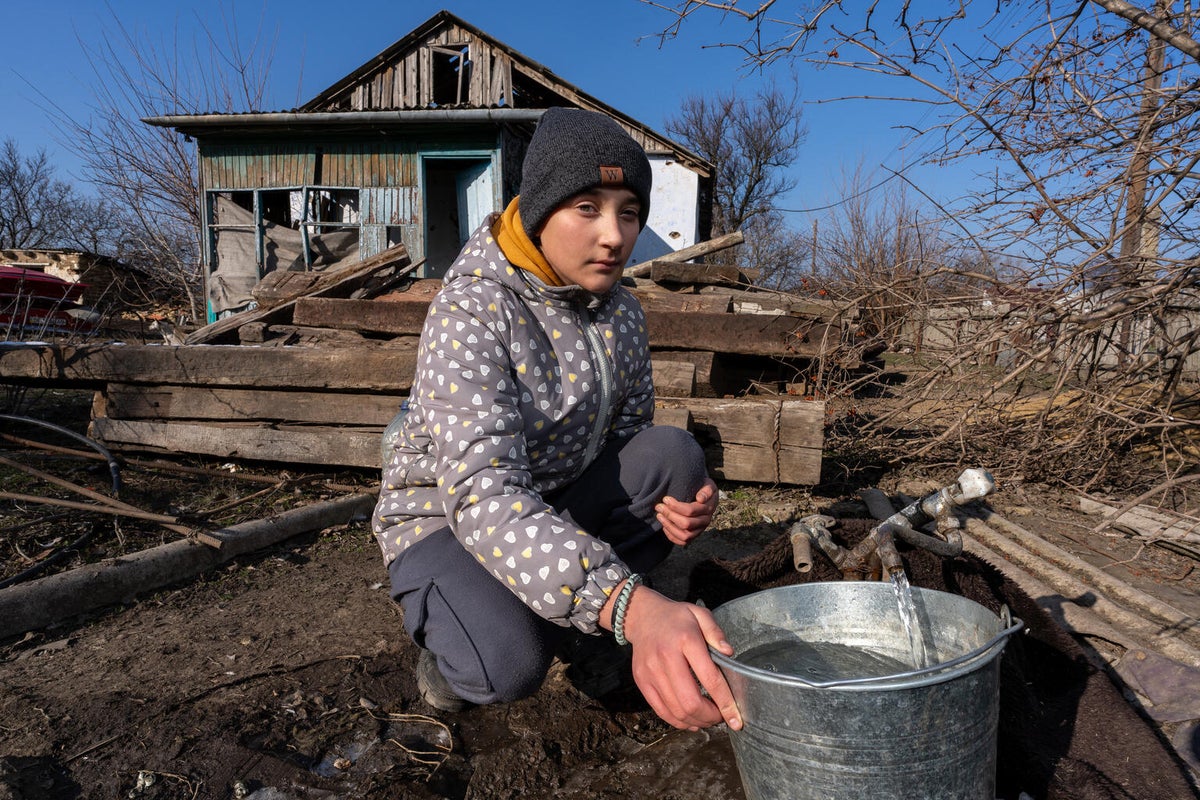
At 14 years old, Yana draws water from a well near her destroyed home in a village heavily damaged during the early days of the full-scale war. The stress she has endured has led to vision problems.
"The shelling knocked out the electricity. We lived for three months without power, and my mother had to use a generator. Eventually, the electricity was restored, but we still don’t have running water. We fetch water here and heat it on a gas cylinder for bathing and washing clothes."
At 15-years-old, David is helping his dad to rebuild
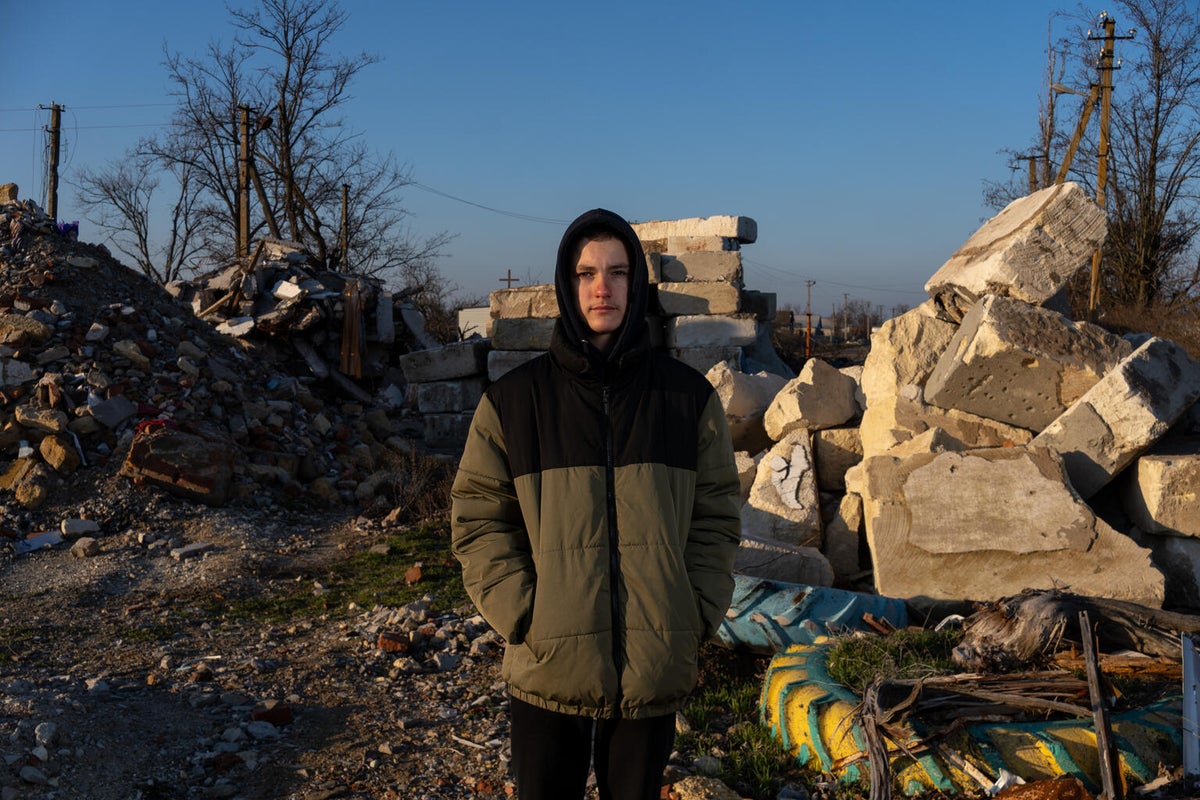
"My classroom was on the second floor. There’s nothing left of it. I really wish they would build us a new school. I will probably never sit at a school desk again and will have to finish my studies online, but I hope my two younger brothers can have a proper education."
“My classroom was on the second floor. There’s nothing left of it. I really wish they would build us a new school. I will probably never sit at a school desk again and will have to finish my studies online, but I hope my two younger brothers can have a proper education,” says 15-year-old David.
In his free time, David helps his father repair their home, which was severely damaged by shelling. His family left the village during the heavy fighting but returned a year ago to rebuild their home and the community.
How is UNICEF helping children in Ukraine?
Working alongside our partners, UNICEF provides critical lifesaving support, including access to healthcare, safe water, education and child protection services in Ukraine. UNICEF also supports recovery and long-term development through strengthening systems that serve children and their families. This includes ensuring that child and social protection and health and education systems can provide timely and quality essential support, care, and opportunities to children.
In 2024 alone, UNICEF and our partners reached 9.8 million people with humanitarian assistance, including:
- 1.2 million people with access to health services.
- 760,000 children, adolescents and caregivers with access to mental health and psychosocial support.
- 480,000 children with access to formal or non-formal education, including early learning.
- 5.8 million people with access to safe drinking water.
Now, more than ever, we need your ongoing support to continue responding to the urgent needs of the most vulnerable children while building a foundation for long-term recovery for all.
Children of Ukraine Crisis
After three years of war, children need you more than ever. Donate to UNICEF's ongoing efforts in Ukraine.
Related articles
Stay up-to-date on UNICEF's work in Australia and around the world







